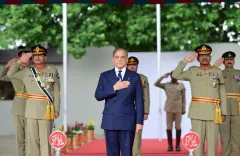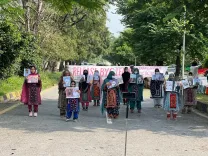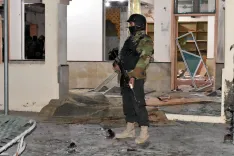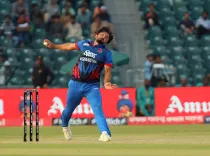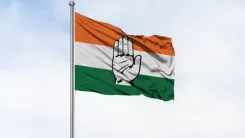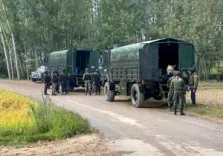Is a Ceasefire Finally Achieved in Libya's Tripoli?
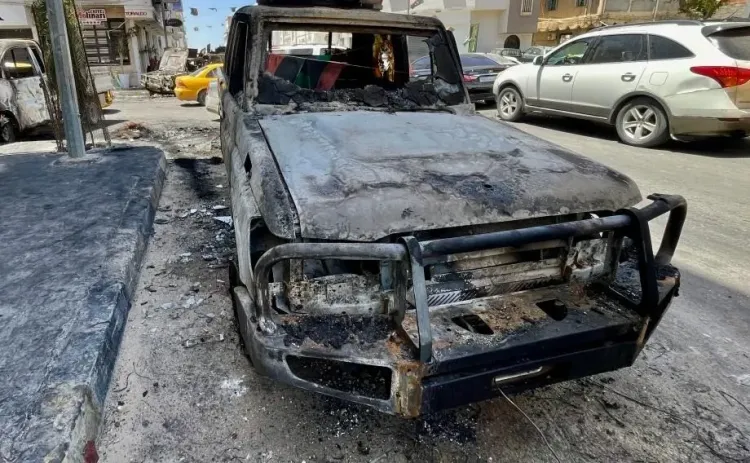
Synopsis
Key Takeaways
- Ceasefire declared by the GNU in Tripoli after militia clashes.
- International community calls for civilian protection.
- Fighting involves factions loyal to different leaders.
- UN condemns violence targeting civilians.
- Libya remains deeply divided post-Gaddafi.
Tripoli, May 14 (NationPress) – The Government of National Unity (GNU), based in Tripoli, announced a ceasefire on Wednesday after fierce overnight confrontations between conflicting militias that extended into the city's central and residential areas. This situation has led to urgent international calls for the protection of civilians and the prevention of any further escalation.
The clashes erupted between groups loyal to Prime Minister Abdul-Hamed Dbeibah, including the 444 Brigade, and factions associated with Abdel Raouf Kara, the head of the Special Deterrence Force.
Residents reported ongoing gunfire throughout the morning, while the Libyan Red Crescent confirmed the recovery of a body in downtown Tripoli. The total number of casualties remains uncertain.
The United Nations Support Mission in Libya condemned the violence and the assaults on civilian areas, warning that harm to non-combatants and infrastructure may constitute crimes under international law.
The ceasefire, as stated by the GNU’s Defence Ministry, took effect by midday, with buffer forces deployed to separate the combatants and stabilize volatile areas.
This recent violence follows deadly clashes earlier this week between the Dbeibah-aligned forces and the Stability Support Apparatus (SSA), triggered by the death of SSA Commander Abdel Ghani al-Kikli, known as Ghaniwa, according to reports from the Xinhua news agency.
A senior official indicated that al-Kikli was killed in a facility controlled by the 444 Brigade, led by militia leader Mahmoud Hamza, who is aligned with Dbeibah. His death incited retaliatory violence, resulting in at least six fatalities, according to security sources. Residents in parts of southern Tripoli also reported hearing intense gunfire involving heavy weaponry, as other areas of the city grapple with significant security tensions.
Libya remains starkly divided more than ten years after the ousting of longtime leader Muammar Gaddafi in 2011. The eastern-based government is supported by the Libyan National Army under the command of Khalifa Haftar, while the UN recognizes the western-based Government of National Unity. Within the western government, various armed factions continue to vie for power.


